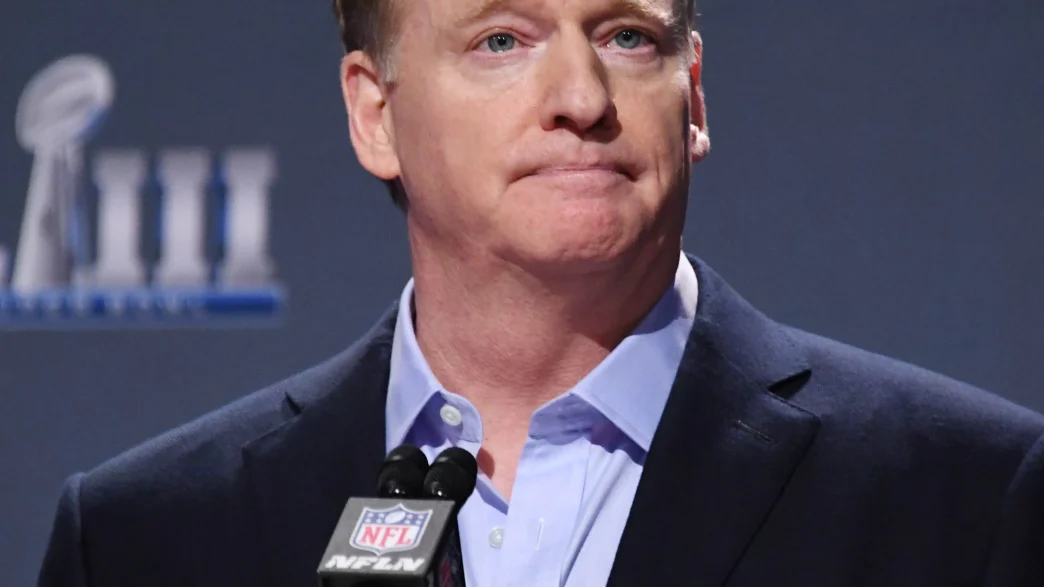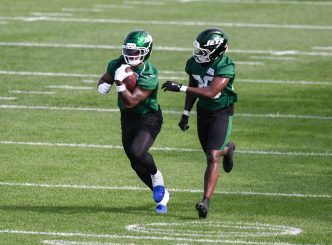As the NFL gears up for its annual spring meetings next week, all eyes are on the proposals that could reshape the competitive landscape of the league for years to come. Team owners and league executives are preparing to dive into discussions that balance tradition with innovation, focusing on three key rule changes that have sparked dialogue across the football world.
Playoff Seeding Reform: A Push for Merit Over Division Titles
The most significant proposal on the table revolves around altering the playoff seeding rules to prioritize overall records rather than relying heavily on division titles. Currently, the NFL playoffs automatically seed division winners based on their records, often leading to eyebrow-raising matchups. For instance, the notorious situation from the 2022 NFC South, where an 8-9 Tampa Bay Buccaneers team hosted the 12-5 Dallas Cowboys, raised questions about the fairness of such a structure.
By shifting to a model that focuses solely on regular-season performance, the league aims to reward teams for consistently high-level play, regardless of division. This change would not eliminate the importance of winning a division – teams would still earn a playoff spot by securing their division title – but it would enhance the fairness of postseason matchups by ensuring that stronger teams take precedence in seeding.
While this proposal could better reflect the efforts of teams within competitive divisions, it does come with concerns about diminishing division rivalries that have historically been so central to NFL culture. Furthermore, the financial implications of potentially losing home playoff games could weigh heavily on some owners’ minds. The proposal requires support from 24 out of 32 owners to pass, and it’s likely that teams from stronger divisions will be in favor, while those from weaker divisions may oppose the change.
The “Tush Push” Conundrum: Innovation or Unfair Advantage?
Another hot topic at the spring meetings is the contentious “Tush Push,” a quarterback sneak tactic that has garnered both praise and criticism since being popularized by the Philadelphia Eagles. This tactic, which allows a ball carrier to be pushed from behind, has some coaches and teams rallying for its ban, arguing that it diminishes the defensive challenge and gives an unfair advantage to offensive squads.
Critics of the “Tush Push” suggest it transforms football into more of a physics problem than a battle of wills. Safety concerns have also surfaced, with potential injury risks for players involved in these tightly packed confrontations. On the other hand, advocates for the tactic argue that it highlights teamwork, timing, and strength, essential qualities in football. They emphasize that the play shouldn’t be banned simply because it has been executed well by a select few teams.
Implementing a ban would require a return to pre-2005 rules, complicating the enforcement process as officials would need to distinguish between legal and illegal assistance in the heat of the moment. Whether the vote sways toward preserving innovation or enforcing perceived fairness is yet to be seen, but one thing is certain: the outcome will speak volumes about how the NFL weighs aesthetics against strategic effectiveness.
Flag Football at the Olympics: A Chance to Grow Internationally
Finally, the NFL will consider whether it should allow active players to participate in the 2028 Summer Olympics as part of the flag football competition. With flag football’s inclusion in the Olympic program, this presents a unique opportunity for the league to expand its global presence. However, as with any major decision, concerns regarding potential injury risks and conflicts with NFL training camps during the Olympics season are making the rounds.
Some are open to limited participation, particularly if it involves younger players seeking global exposure. The NFL Players Association has thrown its support behind this proposal, championing player autonomy and the chance to represent their countries. With emerging stars like Tyreek Hill and Micah Parsons showing interest, the conversation around Olympic participation continues to gather momentum, emphasizing a blend of global outreach alongside the importance of player safety.
Conclusion
The upcoming votes at the spring meetings represent more than just rule changes; they reflect the NFL’s ongoing struggle to modernize while maintaining the spirit of the game. Decisions regarding playoff seeding, tactical innovations like the “Tush Push,” and international participation will collectively influence not just the strategies on the field but also fan engagement and the overall narrative of the league moving forward.
The implications of these proposals could reshape playoff dynamics, alter game-planning strategies, and set new precedents for international involvement. As the meeting unfolds, expect passionate discussions and strong opinions from all corners of the league, as this pivotal moment in NFL history approaches. Whatever the outcomes, one thing is clear: the debate about the future of football is just getting started.








